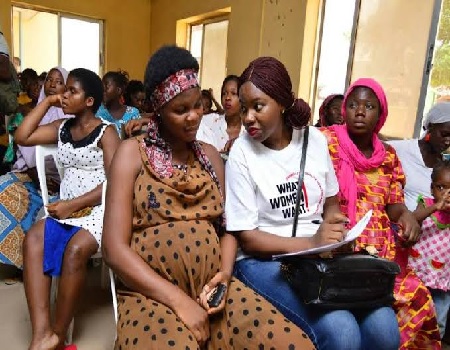EXPERTS say policies and intervention efforts targeting adolescent and youth sexual and reproductive health were largely ineffective, given Nigeria’s high and increasing level of risky sexual behaviours among young people.
They said addressing the high level of risky sexual behaviours among young people is imperative to improve overall national health status and to ensure progress towards achieving SDG target focusing on sexual and reproductive health.
The researchers assessed changes in inconsistent condom use, non-use of modern contraceptives, multiple sexual partnerships, and early sexual debut in unmarried young people aged 15–24 and the associated factors over a ten-year period using datasets from Nigeria Demographic and Health Surveys (NDHS).
In the study titled ‘Changes in contraceptive and sexual behaviours among unmarried people in Nigeria’, published in Plos One, the researchers said the rate of inconsistent condom use, non-use of modern contraceptives, multiple sexual partnerships and early sexual initiation remain high among Nigerian youths.
Females constitute a higher proportion with inconsistent condom use, non-use of modern contraceptives and early sexual initiation, while males constitute a higher proportion with multiple sexual partnerships and no significant progress has been made in terms of contraceptive and sexual behaviours.
According to them, risky sexual behaviour was generally higher among young women compared to men, reflecting a gender-based dimension in the poor SRH outcomes among young people and perhaps increases in sexual and gender violence in recent years.
In addition, the difference in sexual behaviour between adolescents (15–19 years) and youths (20–24), reflects changes as the transition takes place from younger to an older phase, and indicates the need to target the sub-groups differently in programmatic focus.
Also, youths (20–24 years) were less likely to report inconsistent condom use or non-use of a modern method of contraception than adolescents (15–19 years), whereas youths were more likely to have multiple sexual partners than adolescents, reflecting the effect of age dynamics on sexual behaviour.
They said the region of residence is an important factor in the sexual behaviour of young people, with the North-east region having a significantly higher rate of multiple sexual partnerships compared to the South-west, while young people in the South-west region were less likely to report inconsistent condom use compared to those in other regions of the country.
In addition, the study indicated that young people in rural areas were more likely to report inconsistent condom use than those in urban settings, thus demonstrating that the rural population remains underserved in family planning and reproductive health services.
They concluded: “Our findings have important policy implications. There is a need for gender-specific policies and programmes that account for specific gender peculiarities regarding the SRH outcomes between males and females.
“This study suggests that many previous policies and intervention efforts targeting adolescent and youth SRH have been largely ineffective, and therefore recommends the need to prioritise future actions that are well-tailored towards the specific needs of young men and women.”
YOU SHOULD NOT MISS THESE HEADLINES FROM NIGERIAN TRIBUNE
We Have Not Had Water Supply In Months ― Abeokuta Residents
In spite of the huge investment in the water sector by the government and international organisations, water scarcity has grown to become a perennial nightmare for residents of Abeokuta, the Ogun State capital. This report x-rays the lives and experiences of residents in getting clean, potable and affordable water amidst the surge of COVID-19 cases in the state.






